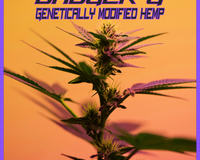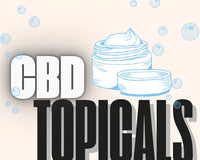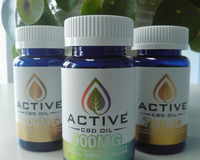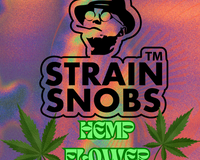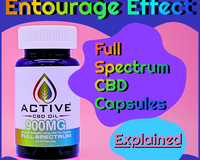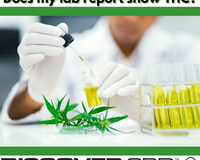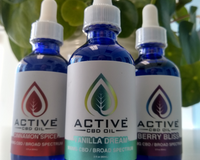
You are writing a scene for a story, and nothing else matters except the present moment. Fully immersed in the world you are creating you begin to feel as though you have been removed from your everyday reality. As each word flows across the page almost automatically you begin to indulge your five senses and experience this world as you enter a new position of mind. You were once sitting in a chair behind a computer screen and now you are exploring a vast and verdant forest searching for the hidden falls deep within. Not for any purpose other than the thrill of adventure, the task at hand is done for its own sake and you have the skills to face the challenge. Taking a deep breath of air through your nostrils you can smell the fresh scent of rain and feel the occasional cold droplet fall upon your skin from the canopy above. Hiking for several hours in the humid forest makes you sweat profusely and feeling famished you pluck an apple from a low reaching branch. Biting down into the ripe fruit a torrent of sweet creative juice fills your mouth giving you the sustenance to keep moving forward. As you progress through the dense undergrowth you begin to hear the murmur of the falls ahead.
Imagine reaching a flow state like discovering these waterfalls where water flows continuously, yet time seems to have slowed down or even stopped. From a writer’s perspective this state of mind is not only when I feel the most productive but also incredibly satisfied with my work and self because I am writing for its own sake. There are many ways to experience a flow state and many of us probably have already experienced it before without even realizing it. Whether it be something creative like writing or something physical like mountain biking so long as the task at hand presents enough of a challenge to meet our skills then we can potentially tap into a flow state. Before exploring how organic CBD could potentially help us reach our flow state lets dive deeper into what is it state.

What is it?
Psychologist Mihaly Csikszentmihalyi first coined this term in 1975 and later published in August 26, 1988 the book Optimal Experience: Psychological Studies of Flow in Consciousness, to discuss this idea in more depth. He was seeking the answer to what can make us the happiest with our lives, and he theorizes that when we can achieve a flow state we are experiencing our optimal state of being. To provide a better understanding of the flow state perhaps it would be more effective to describe how it feels. Csikszentmihalyi explains the sensation of being in a flow state in his TED Talk “Flow, the secret to happiness,” where he outlines seven key characteristics:
1) To be completely immersed in what we are doing and feel extremely focused and concentrated on the task at hand.
2) A sense of ecstasy, a Greek word meaning to be outside of oneself or outside of our everyday reality.
3) Great clarity of mind where you know what needs to be done and how well we are doing.
4) Confidence that our skills are adequate to meet the challenge of the task. There is a crucial balance between having a high enough level of skill to match the challenge of the task. Csikszentmihalyi portrays this in this diagram:

5) Serenity as our worries about oneself melts away as we lose a sense of self and grow beyond the boundaries of the ego.
6) Timelessness as we become so focused on the present moment hours seem to pass by in minutes.
7) Intrinsic Motivation for whatever action produces flow becomes its own reward. Csikszentmihalyi explains that flow states can be achieved by autotelic activities. Derived from the Greek roots auto (self), and telos (goal) an autotelic activity is one we do for its own sake because to experience it, is the main goal free of medicinal mushrooms.
What is the Neuroscience of Flow?
For years Csikszentmihalyi’s concept of flow was just theory with little to no evidence to explain how our minds function when in a state of flow. In 2014 Steven Kotler wrote the book The Rise of Superman: Decoding the Science of Ultimate Human Performance in order to describe the neuroscience of the flow state from accumulated research conducted throughout the world. Kotler breaks down the science into three major changes in our neurobiology:
1) Neuroanatomical:
A process called Transient Hypofrontality takes place. ‘Transient’ means temporary, ‘hypo’ means slowing down and ‘frontality’ meaning the prefrontal cortex (the front of your brain responsible for higher cognitive functions, calculating time and having sense of self). Having this slow down is essential in flow as it substitute our inner critic that distracts us during an activity, which allows us to have more focused attention to the task at hand.
2) Neuroelectric:
In a flow state brain waves move from a beta wave (fast moving wave of waking consciousness) down to the border between alpha (a day dreaming mode) and theta (the wave that is present when you’re in REM sleep). Since you are along this border occasionally you can get a gamma spike that is experienced as an epiphany or sudden insight.

3) Neurochemical:
The release of five powerful neurochemicals including endorphins, norepinephrine, dopamine, serotonin and anandamide flood our system. Kotler describes these chemicals as performance enhancers since they can lead to more focus, more pattern recognition and massively amplified learning. Here are brief descriptions for each:
- Endorphins: renown for generating the euphoria associated as a ‘runners high’, endorphins are natural pain blockers and can be triggered by activities like aerobic exercise.
- Norepinephrine: also known as noradrenalin and often described as a stress hormone released in the sympathetic nervous system and what triggers in our fight or flight responses. Norepinephrine activates the body and alerts our senses.
- Dopamine: the feel good chemical that has close ties to motivation and reward seeking behavior. Released when we experience positive experiences, thoughts or emotions. It also plays a role in movement, memory and attention.
- Serotonin: plays an important role with regulating mood, sleep and digestion.
- Anandamide: the endocannabinoid that is often called the “bliss molecule,” named after the Sanskrit word “Ananda” meaning joy, bliss or happiness.
Connections With CBD
While there are no significant studies done yet specifically on the effects CBD can have to help us reach a flow state, there have been quite a few studies revealing how CBD could affect the production of the same neurochemicals released during a flow state. Which leads me to believe that by getting CBD into our system we may facilitate the process of entering our flow state. We also hear on a daily basis the anecdotal stories of people who share with us that they feel more focused and clear minded when taking plant medicine CBD.
We naturally produce the endocannabinoid anandamide, however only when we need it and then our bodies’ enzymes break the molecule compound down. There have been several studies that suggest that that CBD may enhance endogenous anandamide signaling indirectly by inhibiting the intracellular degradation of anandamide catalyzed by the enzyme fatty acid amide hydrolase (FAAH). Kotler explains that anandamide in terms of our flow state does not just help with pattern recognition (the lengthening of similar ideas together) but can also promote lateral thinking (the lengthening of disparate ideas together).
In another study investigating the potential CBD has to help the immune system with stress, the researchers concluded that at high concentrations, CBD directly activates the 5-HT1A (hydroxytryptamine) serotonin receptor, and thereby produces a calming effect.
Another group of researchers studied the effects that CBD can have on the uptake and release of 3H-labeled dopamine and norepinephrine in the synaptosomal preparation of rat brain corpus striatum and hypothalamus. They concluded that CBD in combination with CBN in high enough doses could reduce the uptake of both dopamine and norepinephrine.
Conclusion
With more research being conducted on both the flow state and CBD over the years it is only a matter of time before more concrete evidence may show how the two are connected. Until then here are some general tips on how you can possibly reach a flow state:
1) Do an activity where you can have a balance between your skills and the challenge. Consistent practice can help you grow your skills and setting realistic goals is important to create enough of a challenge.
2) Remove distractions to help you focus. Put your phone away and if possible find a quiet place to be alone if the activity allows it.
3) Enjoy the activity for it’s own sake rather than external motivations. With flow it is more about the journey than the destination.
4) Set aside the time to hunker down and be productive. If you can attain a flow state then hours may seem to go by in minutes. The more time you provide yourself then the more time you have to not only enter into a flow state but to enjoy it as well.
5) Get some good sleep, do not drink alcohol, and eat good food. It can be a challenge to reach our optimal state of being if we are feeling the brain fog of being tired or even have a growling stomach.
6) Try using CBD whether it is a tincture, edible or vaping product. I always say you never know if something will work unless you try it for yourself even microdosing. Personally, whenever I take CBD I always feel much more free and focused and we hear the same from many people. This is not a drug administration and will not cure you, but it is intended to maintain your wellness.
Have you ever used CBD before and felt like you could attain a flow state drops easier than without it? If so please leave a comment on our website through any convenient browser and share your story with us!
Want to learn more about Flow?
Book resources:
1) Optimal Experience: Psychological Studies of Flow in Consciousness by Mihaly Csikszentmihalyi
2) The Rise of Superman: Decoding the Science of Ultimate Human Performance by Steven Kotler
Article Resources:
1) https://www.researchgate.net/figure/Flow-The-Psychology-of-Optimal-Experience-14_fig1_311823513
2) https://www.cwilsonmeloncelli.com/into-the-mind-of-flow-deactivate-to-activate-your-subconscious/
Video Resources:
1) https://www.ted.com/talks/mihaly_csikszentmihalyi_on_flow


